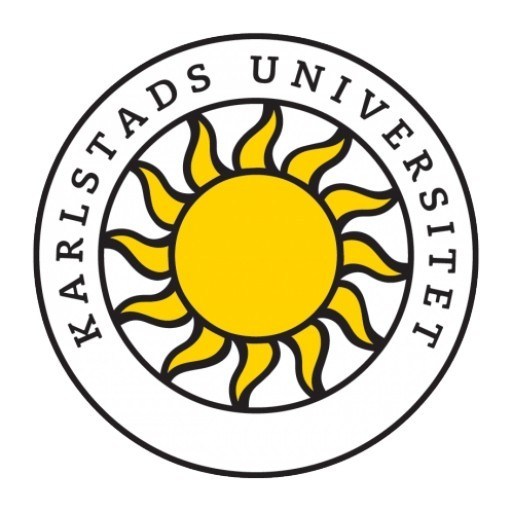Photos of university
The Bachelor’s Degree in Justice Management offered by the National University of Rosario is a comprehensive academic program designed to prepare students for a variety of roles within the criminal justice and legal sectors. This program aims to provide students with a solid foundation in the principles, theories, and practices related to justice, law enforcement, and the management of judicial and correctional institutions. Through a multidisciplinary approach, the program equips students with essential knowledge in areas such as criminal law, constitutional law, criminology, criminal procedure, forensic sciences, and public administration.
The curriculum emphasizes the development of critical thinking, ethical judgment, and effective communication skills, which are crucial for aspiring justice professionals. Students will also gain practical experience through internships and fieldwork opportunities that allow them to apply theoretical knowledge in real-world settings. The program fosters an understanding of the social, political, and legal contexts that influence the justice system, preparing graduates to address complex issues related to crime prevention, criminal justice administration, and the protection of human rights.
Graduates of this degree program are equipped to pursue careers in various sectors, including law enforcement agencies, judicial institutions, correctional facilities, legal consultancy, policy development, and non-governmental organizations dedicated to justice and human rights. The program also aims to develop students’ leadership and management skills to enable them to contribute effectively to institutional reforms and improvements within the justice system.
Furthermore, the Bachelor’s Degree in Justice Management encourages a commitment to lifelong learning and professional development, fostering a mindset that is adaptable to the dynamic nature of the justice sector. With a balanced combination of theoretical instruction and practical application, this program ensures that students are well-prepared to meet the challenges and demands of contemporary justice practice. Through their education, students will be empowered to serve with integrity, uphold the rule of law, and promote social justice within their communities.
The Justice Management degree program at the National University of Rosario offers a comprehensive curriculum designed to prepare students for effective administration and leadership within the justice sector. The program combines theoretical knowledge with practical skills, ensuring graduates are well-equipped to address the complex challenges faced by modern judicial systems. Throughout the course, students explore key areas such as organizational management, law enforcement procedures, judicial processes, and public policy formulation related to justice administration. The curriculum emphasizes the development of critical thinking, ethical decision-making, and strategic planning, enabling students to lead reforms and innovations within legal institutions. Coursework includes modules on criminal justice, human rights, forensic analysis, and the application of information technology in judicial contexts. Students gain hands-on experience through internships, case studies, and project work, fostering an understanding of real-world challenges and solutions. The program also promotes interdisciplinary learning, incorporating insights from sociology, politics, and economics to provide a holistic view of the justice system. Faculty members are experienced professionals and researchers dedicated to mentoring students and advancing knowledge in justice management. Graduates of this program can pursue careers in various sectors, including police departments, judicial agencies, government institutions, NGOs, and private security firms. Additionally, the program prepares students for further specialization through postgraduate studies in law, public administration, or criminology. Emphasizing leadership, innovation, and integrity, the Justice Management program at the National University of Rosario aims to cultivate competent professionals committed to promoting justice, equality, and social order.
Program requirements for the Bachelor’s degree in Justice Management at the National University of Rosario include the completion of a total of 48 coursework subjects, totaling approximately 240 credit hours. Students are expected to undertake foundational courses in law, criminal justice, and public administration during the initial semesters. These foundational courses typically include Introduction to Criminal Law, Principles of Public Administration, and Justice System Overview, which establish essential knowledge for advanced studies.
As students progress, they are required to select and complete elective courses that focus on specialized areas such as corrections, criminal investigation, restorative justice, and legal analysis. Practical training is a core component of the program, often involving internships at local judicial institutions, law enforcement agencies, or correctional facilities. These internships provide students with critically important real-world experience, enhancing their understanding of justice management procedures and administrative practices.
Research methodology courses are mandatory to equip students with skills necessary for academic and professional inquiry, including data collection, analysis, and report writing. Additionally, students must complete a final thesis or capstone project under faculty supervision, demonstrating their ability to apply theoretical knowledge to practical problems within the justice system.
Language proficiency, particularly in legal terminology and communication skills, is encouraged, and some courses might require participation in seminars or workshops organized by the university or external justice agencies. Attendance and active participation in all classes and seminars are compulsory, along with passing all assessments, which include written exams, presentations, and group projects. The program emphasizes the development of ethical standards and a commitment to justice, requiring students to adhere to the university's code of conduct throughout their studies.
Graduates are also expected to demonstrate an understanding of human rights issues and the ethical implications of justice management, preparing them for ethical decision-making in professional settings. The program duration is designed for four years of full-time study, with students needing to maintain a minimum academic performance to qualify for graduation. Upon successful completion of all coursework, practical training, and thesis requirements, students are awarded the title of Bachelor of Justice Management, qualifying them for roles within public security institutions, legal offices, and administrative positions within the justice sector.
The Justice Management program at the National University of Rosario offers a diverse range of financing options to accommodate students' financial needs and promote accessible higher education. Prospective students can explore various funding avenues, including government-funded scholarships and grants provided by national and provincial authorities aimed at promoting legal studies and public service careers. Additionally, the university itself provides internal financial assistance programs, such as partial tuition waivers and payment plans designed to ease economic burdens and facilitate continuous academic engagement. Many students also opt for external scholarship opportunities offered by Argentine government agencies, non-governmental organizations, and private foundations dedicated to supporting students pursuing degrees in law, administration, or related fields.
Furthermore, the university encourages students to seek part-time employment opportunities both within the campus and in the local community to supplement their income while studying. Payment plans are typically flexible, allowing students to pay tuition in installments over the course of the semester or academic year. In some cases, students may also qualify for debt deferment or installment options based on individual circumstances, subject to approval by the university's financial aid office. International students are advised to explore specific scholarships and funding programs available for foreign nationals, and may receive guidance through the university’s international students office.
The university maintains transparent and accessible financial information, including detailed descriptions of eligibility criteria, application procedures, and deadlines for each financial aid program. While specific details on the total cost of the program and exact available scholarships for Justice Management are not publicly listed, similar programs at the National University of Rosario generally maintain competitive tuition fees, making financial planning feasible through the institution’s range of aid options. Students are encouraged to contact the university’s financial services department or visit the official website for the most current information on available financing studies, eligibility requirements, and application procedures.
The Justice Management programme at the National University of Rosario is designed to prepare students for a comprehensive understanding of the legal and judicial systems, with an emphasis on administrative, managerial, and organizational skills necessary for effective justice sector management. The curriculum integrates core legal principles with practical management techniques, aiming to develop professionals capable of addressing complex issues within judicial institutions, law enforcement agencies, correctional facilities, and other entities involved in the administration of justice.
Throughout the programme, students are exposed to a broad range of subjects, including constitutional law, criminal law, civil law, administrative law, and procedural law, complemented by courses in public administration, organizational management, conflict resolution, and legal ethics. This interdisciplinary approach ensures graduates possess not only legal expertise but also strategic thinking, leadership capabilities, and a strong understanding of institutional functioning.
The programme combines theoretical foundations with practical application through case studies, internships, and participatory projects, allowing students to gain real-world experience and develop problem-solving skills relevant to justice management. The faculty comprises experienced professionals from the legal and public administration sectors, whose insights help bridge academic knowledge with current industry practices.
Students can expect a rigorous academic schedule that emphasizes critical analysis, ethical considerations, and the development of innovative solutions to contemporary justice system challenges. Upon completion, graduates are equipped to occupy managerial positions within judicial courts, government agencies, legal organizations, and other institutions involved in justice administration, contributing to the reform, innovation, and efficiency of the justice sector.
The National University of Rosario's Justice Management programme also promotes research and continuous learning, encouraging students to engage in scholarly activities that address pressing issues within the justice system. The programme’s flexible structure may include options for specialization or further studies, facilitating career advancement and academic pursuits.
Overall, the Justice Management programme aims to produce well-rounded professionals who can lead reforms, improve justice processes, and promote the rule of law within their communities and beyond. The programme's commitment to academic excellence and practical relevance makes it a valuable choice for individuals aspiring to influence and improve the justice sector through managerial competence and legal expertise.









